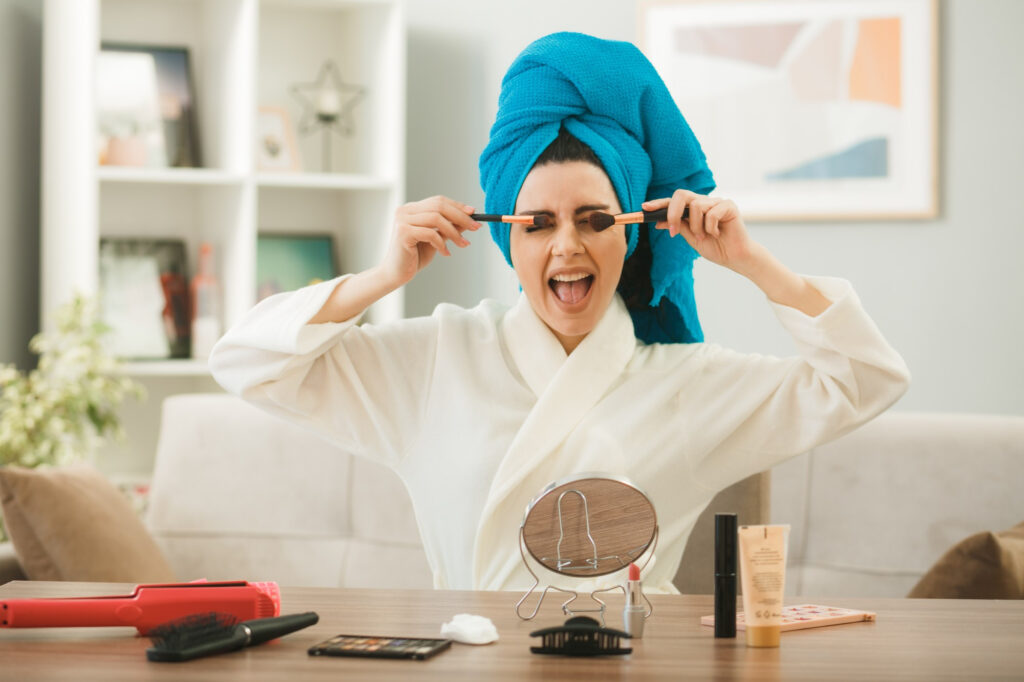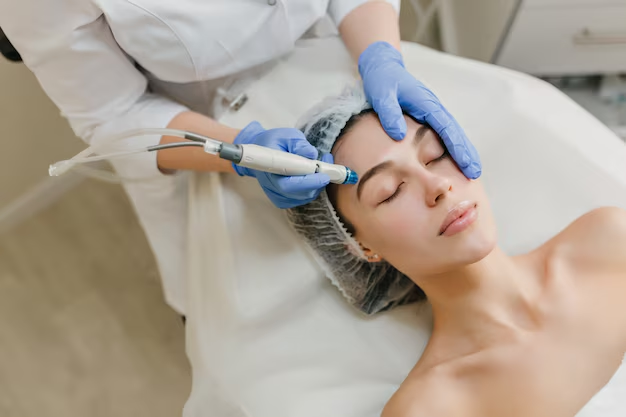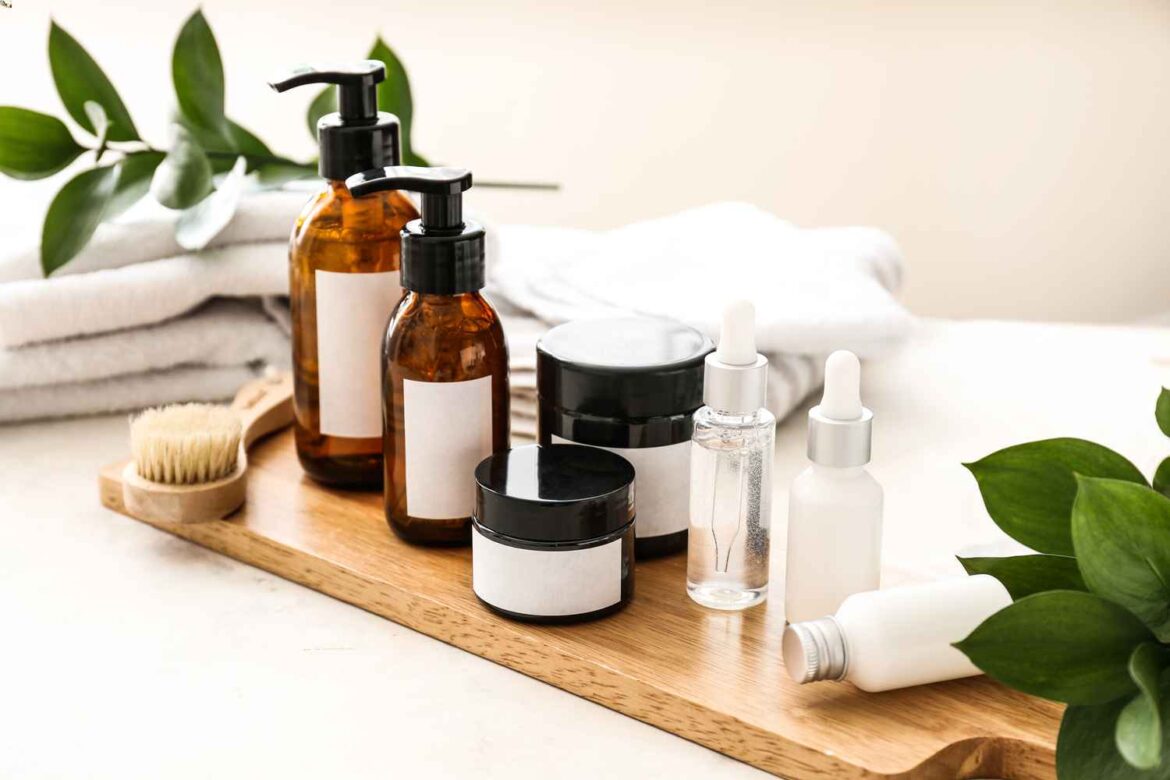The world of skincare can be overwhelming! With countless brands and products vying for your attention, you might wonder: should you stick to one brand for all your skincare needs, or is it okay to mix and match? This guide explores the pros and cons of both approaches to help you build a personalized routine for healthy, radiant skin.
Sticking to One Brand: The All-in-One Approach
Many skincare brands offer product lines designed to work together synergistically. Here are some benefits of sticking to a single brand:
- Convenience: Using products from one brand simplifies your routine. No need to research and compare products from different companies.
- Compatibility: Products within a brand’s line are often formulated to complement each other. This can minimize the risk of irritation caused by conflicting ingredients.

- Brand Loyalty Programs: Many brands offer loyalty programs that reward you for sticking to their products. You might earn points towards discounts or free products.
Also Read: How to Get Rid of Redness from Pimples and Acne? A Comprehensive Guide
Mixing and Matching: Building a Personalized Routine
While there are advantages to a single brand approach, some people prefer to mix and match products from different brands. Here’s why:
- Targeted Ingredients: Different brands specialize in different ingredients or address specific skin concerns. Mixing and matching allows you to target your unique needs.

- Greater Choice: The beauty world offers a vast array of products. Sticking to one brand limits your options. Mixing and matching allows you to find the best product for each step of your routine.
- Affordability: Not all products within a brand are created equal. Mixing and matching allows you to choose budget-friendly cleansers while splurging on a high-end serum.
Top Tip: When mixing and matching, pay attention to the ingredients! Some ingredients can clash and cause irritation. Do your research and look for products that complement each other.
Making the Right Choice for You: Factors to Consider
Ultimately, the best approach depends on your individual needs and preferences. Here are some factors to consider:
- Skin Type: Do you have oily, dry, sensitive, or combination skin? Some brands might specialize in certain skin types.
- Skin Concerns: Are you looking to combat wrinkles, acne, or hyperpigmentation? Choose products with targeted ingredients to address your specific concerns.
- Budget: How much are you willing to spend on skincare products? Sticking to one brand might be more budget-friendly if they offer complete routines at a reasonable price.
- Personal Preference: Do you enjoy trying new products and brands? Or do you prefer the simplicity of a one-brand routine?
Also Read: Stressed Skin? 8 Ways Your Skin Reacts to Stress and How to Help?
Building a Winning Routine: Essential Skincare Steps
Regardless of whether you choose a single brand or mix and match, every good skincare routine should include these essential steps:
- Cleanse: Wash your face twice daily with a gentle cleanser suitable for your skin type. This removes dirt, oil, and makeup without stripping your skin’s natural moisture.

- Tone (Optional): Toners can help remove any leftover traces of cleanser and balance your skin’s pH. However, toners aren’t essential for everyone.
- Treat (Optional): Serums, ampoules, and targeted treatments address specific concerns like wrinkles, dark circles, or acne. Apply these after cleansing and toning.
- Moisturize: Moisturize your face and neck morning and night to keep your skin hydrated and supple. Choose a moisturizer with SPF during the day to protect your skin from the sun’s harmful UV rays.
Beyond the Basics: Advanced Skincare Techniques
Once you’ve mastered the essential steps, you can explore advanced techniques to further enhance your skincare routine:
- Exfoliation: Exfoliate your skin 1-2 times a week to remove dead skin cells and promote cell turnover. Choose a gentle exfoliator suitable for your skin type.
- Face Masks: Treat your skin to a face mask once or twice a week for a boost of hydration, nourishment, or targeted skincare benefits.
- Sheet Masks: Sheet masks are soaked in concentrated serums and offer a convenient way to deliver an intense dose of hydration or other skincare benefits.
Seeking Professional Help: When to Consult a Dermatologist
While building a DIY skincare routine is empowering, there are times when seeking professional help from a dermatologist is recommended:
- Persistent Skin Concerns: If you struggle with chronic acne, eczema, rosacea, or other persistent skin conditions, a dermatologist can diagnose the problem and recommend the best treatment options.

- Considering Cosmetic Procedures: If you’re considering cosmetic procedures like Botox or fillers, a dermatologist can assess your suitability and perform the procedure safely and effectively.
- Sudden Skin Changes: Any sudden or unexplained changes in your skin, like new moles or rashes, warrant a visit to the dermatologist to rule out any underlying conditions.
Myth Busting: Common Misconceptions About Skincare Brands
- Myth: More expensive brands are always better. While some luxury brands offer high-quality ingredients, there are also effective and affordable options available.
- Myth: You need a ten-step routine for glowing skin. A simple, well-executed routine with the right products can be more effective than a complicated one.
- Myth: Natural ingredients are always better than synthetic ones. Both natural and synthetic ingredients can be beneficial in skincare. What matters most is their effectiveness and safety for your skin.
The Final Verdict: There’s No One-Size-Fits-All Answer!
The best approach to skincare is the one that works best for you. Experiment with different products and brands, pay attention to how your skin reacts, and don’t be afraid to mix and match to create a personalized routine that keeps your skin healthy and radiant. Remember, consistency is key! Sticking to your routine and using products regularly will yield the best results.
Additional Resources for Glowing Skin:
- The American Academy of Dermatology: https://www.aad.org/
- The Skin Cancer Foundation: https://www.skincancer.org/
- British Association of Dermatologists: https://www.bad.org.uk/
With a little effort and the right approach to skincare, you can achieve a healthy, glowing complexion that radiates confidence from within!
Should I Stick To One Skin Care Brand? – FAQs
This FAQ dives deeper into specific questions you might have about building a skincare routine:
1. I have sensitive skin. Is it safer to stick to one brand?
Sensitive skin can be easily irritated by new products. Using a single brand that offers gentle, hypoallergenic formulas can minimize the risk of irritation. However, some brands specifically cater to sensitive skin, so you might find success mixing and matching products formulated for sensitive skin from different brands. Patch testing any new product before applying it all over your face is crucial for sensitive skin.
2. If I mix and match products, how do I know if they’ll work well together?
When mixing and matching, research the ingredients in each product. Avoid layering products with conflicting ingredients that can irritate your skin. For example, combining a high concentration of retinol with a strong AHA (alpha hydroxy acid) exfoliant can be too harsh. Look for products that complement each other, such as a hydrating toner followed by a lightweight moisturizer.
3. Is it okay to use a drugstore cleanser and a high-end moisturizer?
Absolutely! Drugstore cleansers can be just as effective as high-end ones, as long as they are gentle and suitable for your skin type. Moisturizers, however, can sometimes target specific concerns like wrinkles or hyperpigmentation, which might justify a higher price point. Focus on finding the right product for each step of your routine, regardless of brand or price.
4. What are some good drugstore skincare brands?
Many drugstore brands offer excellent skincare products at affordable prices. Here are a few popular options to get you started (always remember to patch test before using any new product):
- Cetaphil: Gentle cleansers and moisturizers suitable for sensitive skin.
- Cerave: Affordable cleansers, moisturizers, and serums with ceramides to strengthen the skin barrier.
- Neutrogena: Offers a variety of cleansers, moisturizers, and targeted treatments for different skin concerns.
- La Roche-Posay: French drugstore brand with a focus on sensitive skin and sun protection.
5. How can I find the best products for my specific skin type and concerns?
- Online Reviews: Read reviews of skincare products from reliable sources, keeping in mind that everyone’s skin reacts differently.
- Beauty Blogs: Many beauty bloggers offer honest reviews and recommendations for different skin types and concerns.
- Dermatologist Consult: A dermatologist can assess your skin and recommend products tailored to your specific needs.
6. Is it bad to switch skincare brands frequently?
Occasionally trying new products is okay, but constantly switching brands can disrupt your skin’s natural balance. Give new products at least 4-6 weeks to see their full effects before switching again. However, if you experience any irritation, discontinue use immediately.
7. Can using expired skincare products harm my skin?
Yes, expired skincare products can lose their effectiveness or even become irritating. Always check the expiration date on your products and discard them after that date.
8. How long does it take to see results from a new skincare routine?
Everyone’s skin renews at a different rate. Generally, it can take 4-8 weeks to see noticeable results from a new skincare routine. Be patient and consistent with your routine for optimal results.
9. Is diet important for healthy skin?
Absolutely! A balanced diet rich in fruits, vegetables, and whole grains provides your skin with the nutrients it needs to stay healthy and radiant. Drinking plenty of water is also crucial for hydration.
10. Should I be concerned about the ingredients in skincare products?
Yes, it’s wise to be aware of the ingredients in your skincare products. Some people prefer to avoid certain ingredients like parabens or sulfates due to potential concerns. Research ingredients you want to avoid and look for products that are free of those ingredients.
